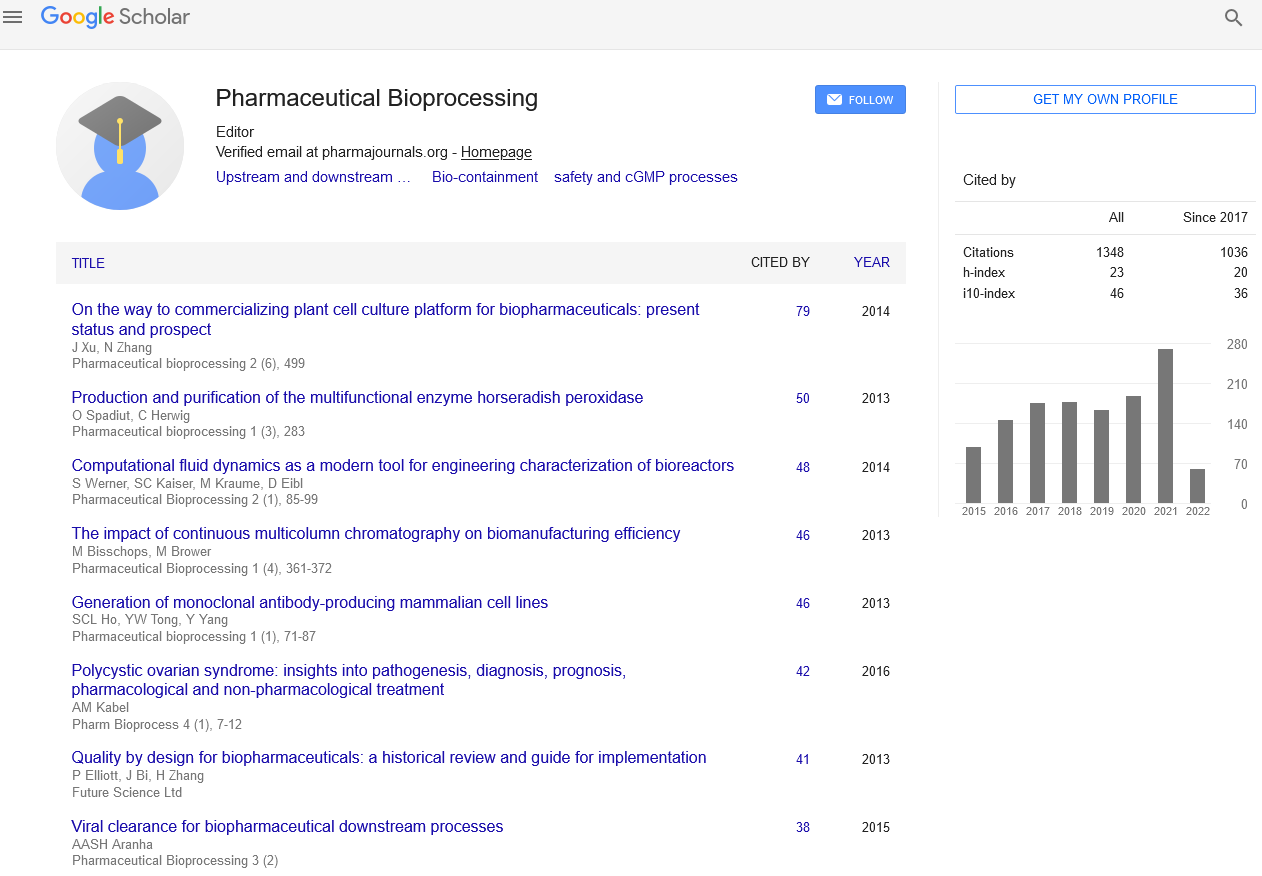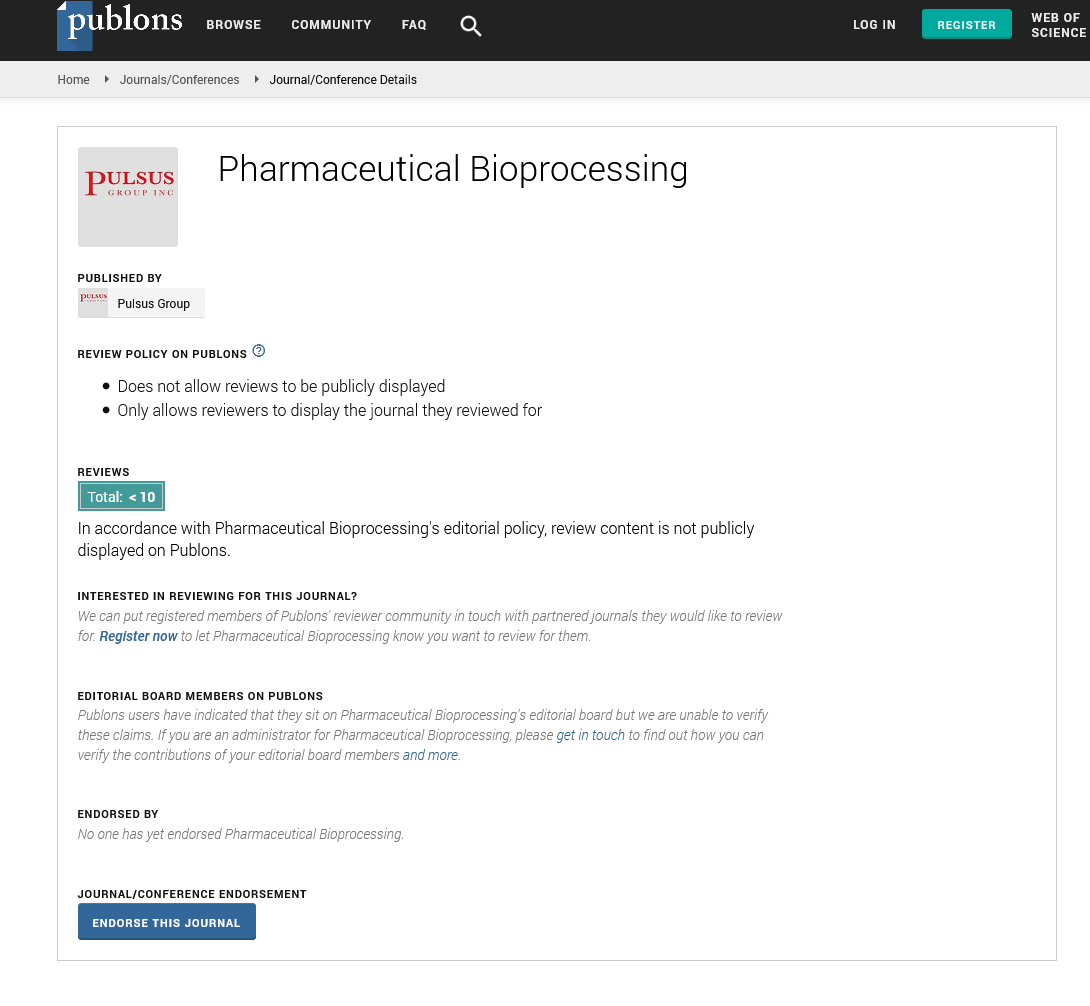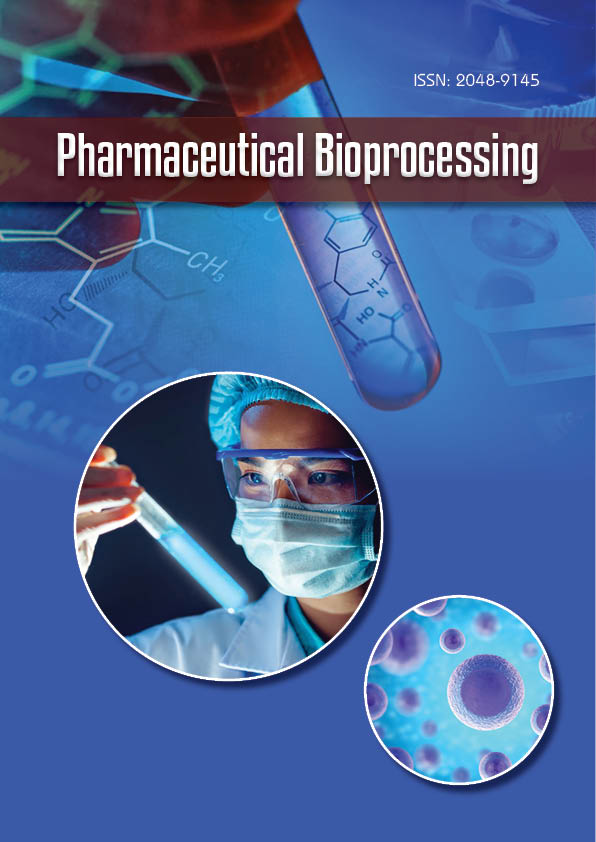Editorial - Pharmaceutical Bioprocessing (2021) Volume 9, Issue 4
Antibiotics -Overview
- *Corresponding Author:
- Yang ST
Department of microbiology, United States
E-mail: Yang124@epharmajournal.org
Abstract
An antibiotic is a kind of antimicrobial substance dynamic against microscopic organisms. It is the main sort of antibacterial specialist for battling bacterial diseases, and anti-infection prescriptions are generally utilized in the treatment and avoidance of such infections. They may either murder or repress the development of microbes. A predetermined number of anti-toxins additionally have antiprotozoal movement. Anti-infection agents are not successful against infections, for example, the basic cold or flu drugs which hinder infections are named antiviral medications or antivirals as opposed to anti-microbials.
Once in a while, the term anti-infection-in a real sense “contradicting life”, from the Greek roots, however in the standard clinical use, anti-infection agents (like penicillin) are those delivered normally (by one microorganism battling another), though nonantibiotic antibacterial (like sulphonamides and germ-killers) are completely engineered. Notwithstanding, the two classes have a similar objective of executing or forestalling the development of microorganisms, and both are remembered for antimicrobial chemotherapy. “Antibacterial” incorporate germicide drugs, antibacterial cleansers, and compound sanitizers, though anti-toxins are a significant class of antibacterial utilized all the more explicitly in medication and some of the time in domesticated animal’s feed.
Anti-toxins have been utilized since old occasions. Numerous human advancements utilized effective use of rotten bread, with numerous references to its gainful impacts emerging from old Egypt, Nubia, China, Serbia, Greece, and Rome. The primary individual to straightforwardly archive the utilization of molds to treat diseases was John Parkinson (1567–1650). Anti-infection agents altered medication in the twentieth century. Alexander Fleming (1881–1955) found advanced penicillin in 1928, the broad utilization of which demonstrated altogether gainful during wartime. In any case, the adequacy and simple admittance to anti-toxins have likewise prompted their abuse and a few microbes have developed protection from them. The World Health Organization has ordered antimicrobial opposition as a far reaching “genuine danger [that] is not, at this point an expectation for the future, it is going on right now in each locale of the world and can possibly influence anybody, of all ages, in any country”
An anti-infection is a sort of antimicrobial substance dynamic against microorganisms. It is the main sort of antibacterial specialist for battling bacterial diseases, and anti-infection prescriptions are generally utilized in the treatment and avoidance of such contaminations. They may either execute or restrain the development of microscopic organisms. A predetermined number of anti-infection agents likewise have antiprotozoal activity. Antibiotics are not viable against infections like the basic cold or flu drugs which restrain infections are named antiviral medications or antivirals as opposed to anti-microbials. Here and there, the term anti-infection—in a real sense “contradicting life”, from the Greek roots is extensively used to allude to any substance utilized against organisms, however in the typical clinical utilization, anti-infection agents (like penicillin) are those created normally (by one microorganism battling another), though nonantibiotic antibacterial (like sulphonamides and germicides) are completely engineered. In any case, the two classes have a similar objective of murdering or forestalling the development of microorganisms, and both are remembered for antimicrobial chemotherapy. “Antibacterial” incorporate germ-free medications, antibacterial cleansers, and substance sanitizers, while anti-infection agents are a significant class of antibacterial utilized all the more explicitly in medication and some of the time in animal’s feed.
Anti-microbials have been utilized since old occasions. Numerous civilizations utilized effective utilization of rotten bread, with numerous references to its helpful impacts emerging from antiquated Egypt, Nubia, China, Serbia, Greece, and Rome. The primary individual to straightforwardly archive the utilization of molds to treat contaminations was John Parkinson (1567– 1650). Anti-microbials upset medication in the twentieth century. Alexander Fleming (1881–1955) found current penicillin in 1928, the broad utilization of which demonstrated fundamentally useful during wartime. Nonetheless, the viability and simple admittance to anti-toxins have additionally prompted their abuse and a few microbes have developed protection from them. The World Health Organization has ordered antimicrobial obstruction as a boundless “genuine danger [that] is not, at this point an expectation for the future, it is going on right now in each district of the world and can possibly influence anybody, of all ages, in any country”.
Anti-infection agents are utilized to treat or forestall bacterial infections, and now and then protozoan diseases. (Metronidazole is compelling against various parasitic sicknesses). At the point when a disease is associated with being liable for an ailment however the dependable microbe has not been distinguished, an empiric treatment is received. This includes the organization of a wide range anti-infection dependent on the signs and side effects introduced and is started forthcoming research center outcomes that can require a few days.
At the point when the capable pathogenic microorganism is known or has been distinguished, authoritative treatment can be begun. This will generally include the utilization of a thin range anti-toxin. The decision of anti-toxin given will likewise be founded on its expense. Recognizable proof is basically significant as it can diminish the expense and poisonousness of the anti-microbial treatment and furthermore lessen the chance of the development of antimicrobial obstruction. To keep away from medical procedure, anti-toxins might be given for non-convoluted intense an infected appendix Anti-infection agents might be given as a preventive measure and this is generally restricted to in danger populaces like those with a debilitated insusceptible framework (especially in HIV cases to forestall pneumonia), those consuming immunosuppressive medications, malignant growth patients, and those having surgery. Their utilization in surgeries is to help forestall disease of entry points. They have a significant part in dental anti-infection prophylaxis where their utilization may forestall bacteremia and ensuing infective endocarditis. Anti-toxins are additionally used to forestall disease in instances of neutropenia especially malignancy related.


